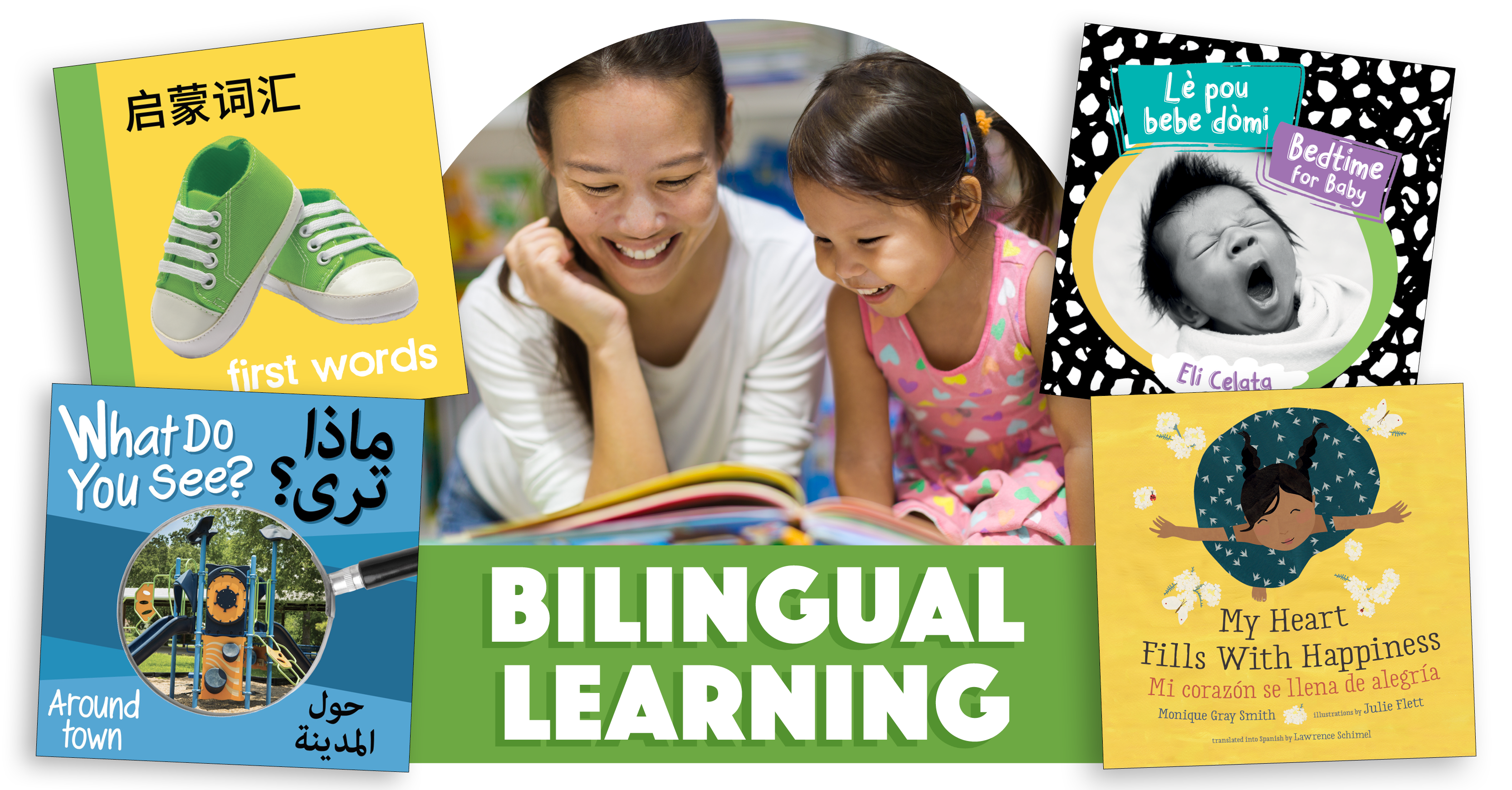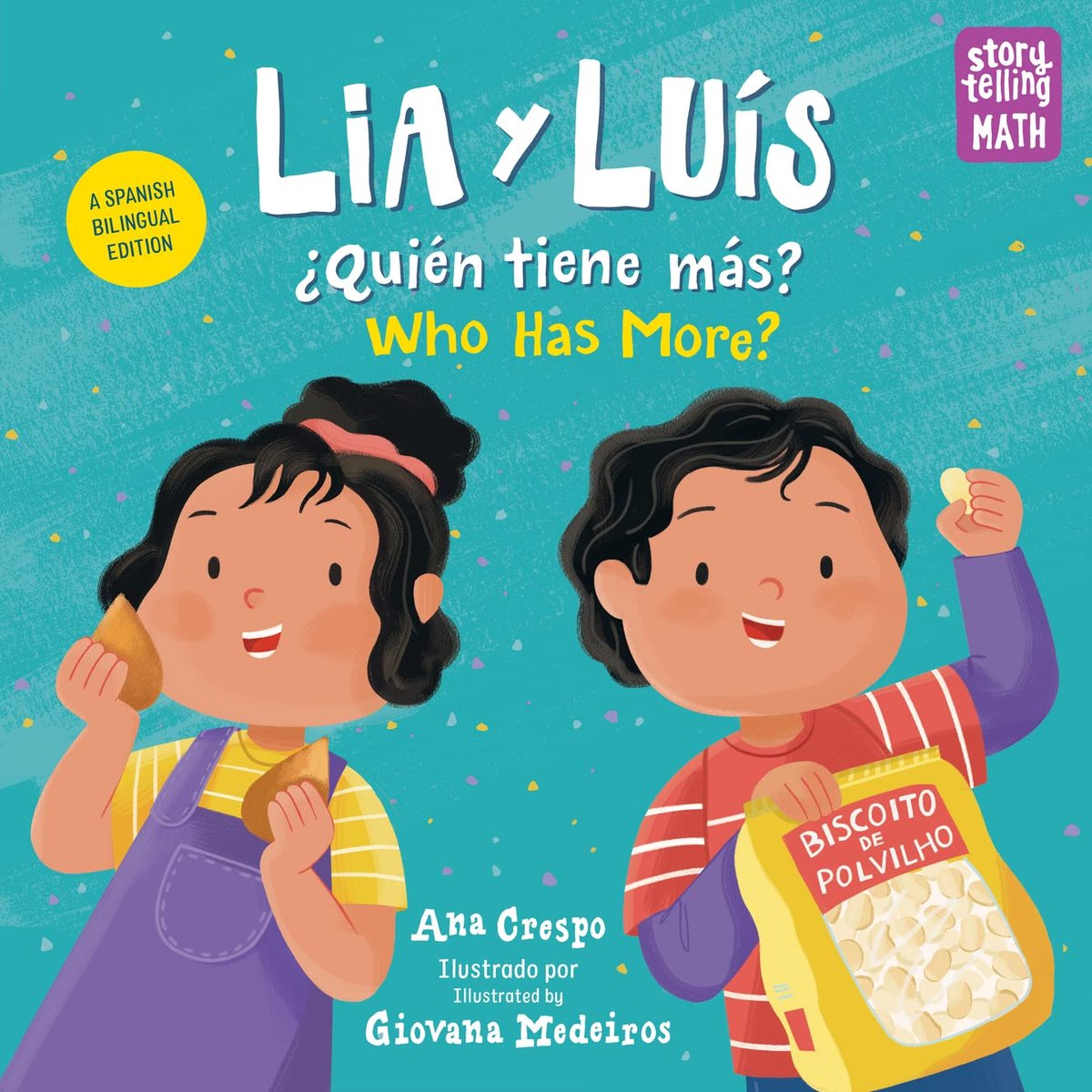Oct 8 2024
Boosting Language Skills with Bilingual Books

"In my experience working with multi-lingual families, offering books and reading materials that include native or home languages has increased the frequency of parents picking up the materials and reading with their children. This parental modeling normalizes whole family literacy and underscores the value of native languages in meaning making."
Sarah Lubold, Migrant Educator
Some parents and educators may hesitate to use bilingual books, fearing children might focus only on their dominant language. However, bilingual books can expedite mastering a second language when used effectively. A strong foundation in a child's native language is crucial for learning additional languages. Studies show that children proficient in their native language are better at transferring skills to a second language. Bilingual books promote dual-language development, allowing children to read in their dominant language while learning vocabulary and sentence structures in a second language. Prime language learning occurs between ages 2 and 5 years, but research indicates babies start learning language sounds in utero and can distinguish between languages from birth. Thus, young children are well-prepared to learn a second language.
Bilingual books offer many advantages for language acquisition:
Skill Transfer: Children can apply reading and comprehension skills from their native language to a second language. This helps them recognize sentence structures and grammar, enabling smoother language learning. Proficiency in multiple languages enhances their ability to draw parallels and apply strategies between languages efficiently.
Vocabulary Building: Bilingual books introduce new vocabulary in context, aiding retention and understanding. Children who learn multiple languages can transfer skills between them, achieving better fluency. Bilingual books allow reading in a stronger language while learning new vocabulary and structures in a second language.
Improved problem-solving skills: Children who are exposed to multiple languages often exhibit enhanced cognitive abilities and improved problem-solving skills. When confronted with challenges, bilingual children are more adept at identifying various solutions due to their diverse linguistic experiences.
Cultural Awareness: These books often include cultural references that enrich a child's understanding of both languages. When children see their home language written alongside the second language, they can identify both languages as equally important. This is a key element in helping dual-language families feel that their home language is respected and appreciated.
Check out our extensive selection of bilingual books!
Bilingual books are a powerful tool for children's language development, offering benefits beyond literacy. They help bridge native and second languages, enhancing reading skills, critical thinking, and vocabulary across languages. Regular reading sessions with these books encourage engagement and participation, reinforcing language skills and boosting confidence. Incorporating them into daily routines creates an environment that nurtures curiosity and learning, leading to lifelong linguistic and cognitive benefits.
Posted on Oct 8, 2024

Hey there, I’m Brittany Winans
Brittany started in Spring 2022 and works on maintaining all our marketing, branding, publishing, and social media efforts with our Marketing Manager. If you follow us on social media, chances are you have already seen some of Brittany’s work!





-1.jpg?width=1200&length=1200&name=Curious%20George%20at%20the%20Aquarium%20(Jorge%20el%20curioso%20visita%20el%20acuario)-1.jpg)



